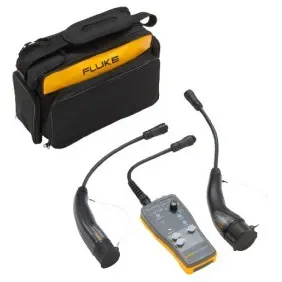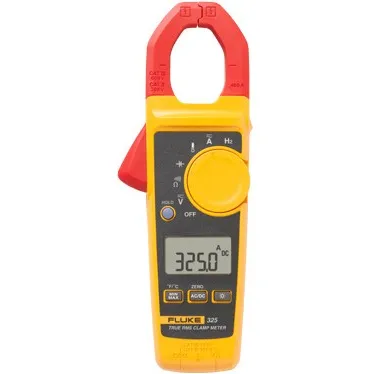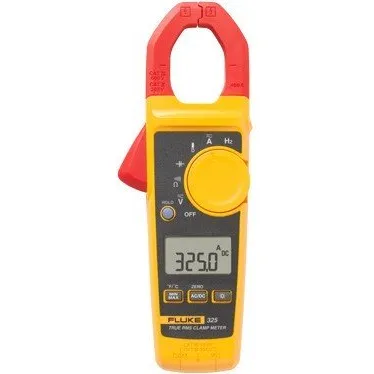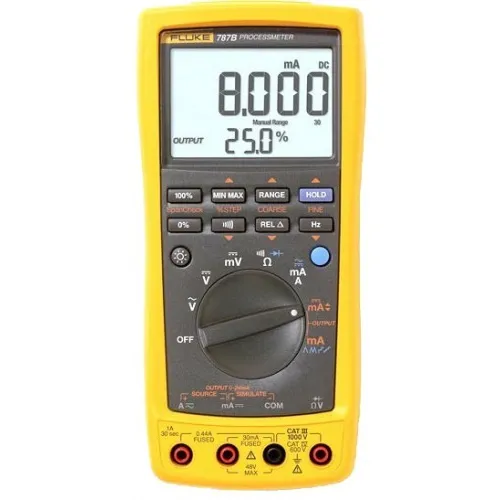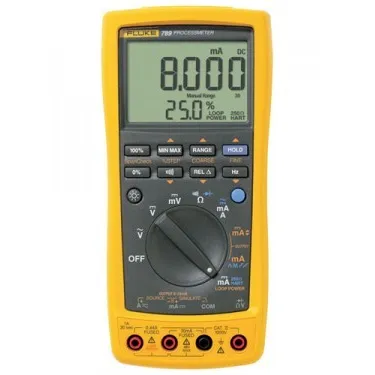Fluke FEV100 Electronic Vehicle Charging Station Adapter Kit with Tesla type connector and cable, 250 V, 50/60 Hz
Easy and reliable, this EV adapter kit tests the functionality and safety of electric vehicle charging stations that comply with SAE-J1772 standards. In addition, this kit comes with a test adapter, type 1 connector and adapter, Tesla type connector and cable, and a soft carrying case.
View all
KWD 527.000
Description
Fluke FEV100/TY1 & TSL Offers Test the safety and performance of Tesla™ AC wall connectors for residential or commercial destination charging locations with the included Tesla-type connector. With over 35,000 Tesla™ wall connectors at destination sites, there is a growing need for a Tesla™ type connector in addition to the standard Type 1 connector, making this an ideal addition to your kit. Please note that the connector for the Tesla™ station does not work with the Tesla™ Superchargers or any other DC fast charging stations. Do not attempt to use this adapter with DC fast chargers. Features Vehicle simulation: CP control pilot state simulation tests different charging states Grounding protection: PE pre-test for dangerous voltage GFCI testing: Stay protected from and check the risk of electric shock Compatibility: Integrates into the Fluke portfolio of test and measurement tools (sold separately) SAE J1772: Complies with North American standards Test the functionality and safety of electric vehicle charging stations, easily and reliably Test the safety and performance of type 1 or connector for Tesla™ station, level 1 or level 2 electric vehicle AC charging stations (EVSEs) with the test adapter. This test adapter simulates the presence of an electric vehicle, allowing you to conduct tests in combination with appropriate test instruments such as a digital multimeter or oscilloscope (sold separately). Use this adapter to verify an EVSE is working properly after installation and during periodic maintenance, or troubleshoot an EVSE if it is not delivering the appropriate charge. Safety EVSE charging cables may become damaged over the course of use, increasing electric shock risks to users. Stay protected from and check the risk of electric shock with the GFCI trip test. This function verifies the breaker of the EVSE is connected by detecting ground faults. Additionally, the PE grounding protection pre-test verifies that there is no presence of dangerous voltage on the ground terminal. Simplicity and convenience Perform a variety of tests including ground fault checks, insulation of wires, measuring voltage, and duty cycle to see the maximum current available for charging all with one adapter that safely integrates with the Fluke portfolio of test and measurement tools. There is no need to bring an electric vehicle onsite for EVSE troubleshooting: the adapter acts as an electric vehicle when connected to an EVSE for easy performance and maintenance testing. Applications Electric vehicle charging stations Maintenance Troubleshooting How to test a charging station Once an EVSE recognizes it is connected to a "car" and is ready for charging, the adapter tests if the EVSE is performing the way it should be. 1. Perform the safety grounding protection pre-test to verify that no dangerous voltage is present in the grounding circuit. If the indicator lights up, it is possible that the electrical wiring has been set up improperly or there is a grounding malfunction. In this instance stop further testing immediately and check for a possible wiring fault of the ground conductor 2. Verify station output voltage using an additional meter, such as the 87V digital multimeter (sold separately). 3. Verify station maximum preset charge current using CP terminals and a meter with a duty cycle function or an oscilloscope (sold separately). 4. Simulate the error states as described in the SAE J1772 standard: CP error "E", GFCI trip test, and grounding error. CP error "E" simulation The standard SAE J1772 defines Error "E" as a state when the charging station is: disconnected from the vehicle, disconnected from the utility, there is a loss of utility power or the control pilot is short to control pilot reference (ground). This error simulation tests the station to ensure that if there is an issue with the CP of the vehicle, the station and utility will not supply a charge to the vehicle. GFCI Each EVSE is required to be equipped with GFCI protection. On many stations, the GFCI protection is fully automatic and does not need a manual reset after the GFCI circuit is tripped. Ground error (ground fault) simulation The Ground Error button simulates an interruption of the ground conductor. As a result, the pending charging process is aborted and new charging processes are prevented. Advanced tests such as insulation resistance, power quality, analysis of the control pilot waveform, and loop impedance can also be done using the adapter in conjunction with appropriate test and measurement equipment (sold separately). Verifying charging voltage with vehicle simulation The CP state rotary switch selector simulates various vehicle states when the test adapter is connected to the charging station. Vehicle states are simulated with different resistances connected between CP and PE conductors.
Downloads
Specifications
LEGAL DISCLAIMER
All products are 100% genuine and legally purchased from authorized sources. Indspare is not an authorized dealer, agent or affiliate of any of the designers, brands, or manufacturers, the products of which are offered for sale on www.indspare.com. All trademarks, brand names, and logos mentioned are used for identification purposes only and are registered trademarks of their respective owners who reserve the rights of ownership. The use of trademark, brand name or product on our website is not intended to suggest that the company, trademark or brand is affiliated to or endorses our website.

